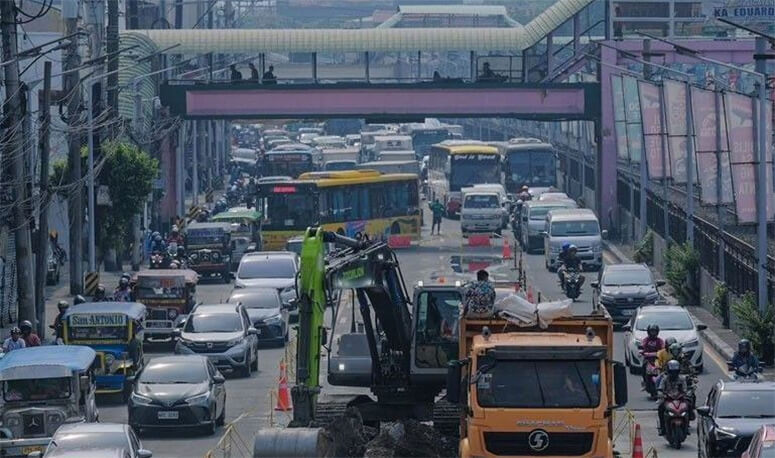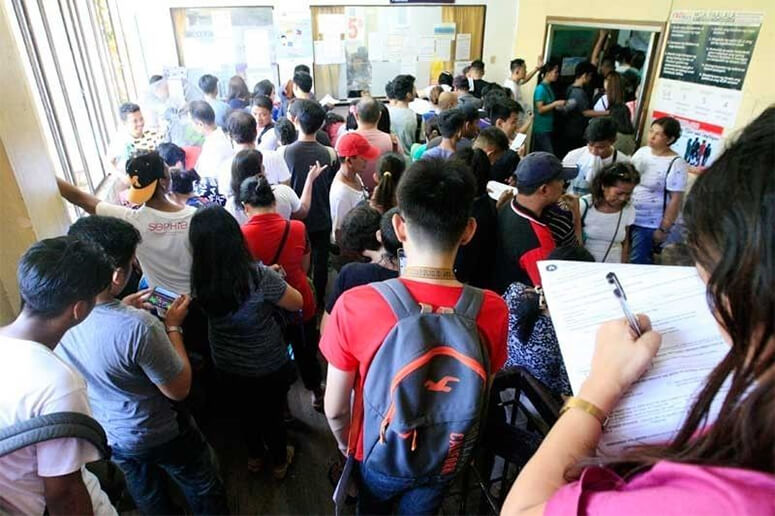The ‘Queue and A’ of shortcuts
I saw it again on election day, the long and winding lines of people with umbrellas and hats, anxiously waiting to enter the polling precinct. Together with my wife and son, we had arrived really early, hoping to beat the rush. We were ushered into the priority voting area, but by the time we cast our ballots and stepped outside, the queue had already wrapped around the block.
Wait. Line? Queue?
Here in the Philippines, we use both words interchangeably. It’s one of the many quirks of our multi-cultural adaptation, like Hollywood meets BBC.
There’s something about a queue that sparks Filipino ingenuity. We don’t just line up, we hack the system. Moms stake out parking slots with their bodies, pews are ‘reserved’ with Bibles, bags or umbrellas for companions still navigating traffic.
Simply put, “queue” is just a “line” wearing a bow tie and top hat. Queue has four superfluous letters that feel like they’re standing in line themselves, waiting for their turn to matter. Why not just “Q”? Like the voting process, it’s almost as if the word itself is testing our patience.
Patience, as it turns out, is not exactly our national strong suit.
Filipinos and lines have never really gotten along. We know they exist. We respect their purpose, for they represent order. But we also eye them warily, like that one strict high school teacher who made us learn, but also gave us PTSD: mentor and tormentor, Jedi and Sith, rolled into one. We admire lines from a safe distance and judge those who cross them.

There’s something about a queue that sparks Filipino ingenuity. We don’t just line up, we hack the system. Moms stake out parking slots with their bodies, pews are “reserved” with Bibles, bags or umbrellas for companions still navigating traffic, and toddlers are stationed to “hold” tables at packed inasal joints. By their teens, the kids know the drill: They stand in checkout lines beside a queue of empty carts, while mom zips through the aisles, dropping items in the carts, one by one, as she circles the store, ending precisely just as it’s their turn to pay.
Is this attitude what our forebears referred to as “crab mentality”? I think the Tagalog version sounds better: utak talangka. You know how crabs step on each other to get to the top even if it means the winner goes to the pot of boiling water first? Discipline be damned for Pinoys wanting to get ahead of everyone else.
In traffic, for instance, forget counterflow or beating the red light. The latest thing that infuriates many drivers is the more benign—and generally tolerated—cutting in or singitan.

Line-cutting is less bad behavior and more performance art, really. Those who do this without compunction sneer at others who aren’t as “smart” or as skillful as them. Notice how those who habitually cut through traffic lines are also the ones who graciously let others cut in.
There’s honor among thieves, after all. Oddly, the same Filipino who invents a dozen ways to cut in line, avoid traffic violation tickets, and reach their destination ahead of lesser drivers, turns into a model citizen whenever he’s in another country. Upon stepping on foreign soil, Pinoys turn into paragons of discipline, order, and civic mindedness. Totally woke, as the millennials and Gen Zs would say. We line up for every ride in Disneyland. We avoid gum and cigarettes in Singapore. We hold on to our trash in Tokyo. We queue for our photo opportunity at Platform 9-3/4 at London’s King’s Cross Station. We respect pedestrian lanes in Seoul like they’re sacred scripture.
I remember when I was in Japan and was about to cross the street one early morning, oblivious to the Don’t Walk sign—it was 5 a.m. and the roads were deserted—when I was rebuked by an old lady who was waiting for the WALK sign to flash. She mumbled, “Bakana gaikoku hito.” My Japanese classmates laughed when I asked them what she meant.
Apparently, I had been called a “stupid foreigner.” Lesson learned, at least until I returned to Manila, Manila, ain’t no place like Manila.
So what’s the diff? Two words: mind conditioning. Most Martial Law babies would remember the slogan of Marcos 1.0: “Sa ikauunlad ng bayan, disiplina ang kailangan.”
(Discipline is necessary for national development.) President Ferdinand Marcos Jr. tweaked this message a bit in his latest New Year’s message: “Ang bagong Pilipino ay disiplinado, mahusay, at higit sa lahat, mapagmahal sa bayan, mapagmahal sa kapwa-Pilipino.” (The new Filipino is disciplined, capable and most of all, loves the country and our countrymen.)
Evidently, in the last half century, we haven’t learned anything. Are we inherently disobedient and unteachable? I’m an optimist, so I’d say we’re, um, highly adaptive: When the system rewards resourcefulness over discipline, guess which one we’ll pick?
Historically, queuing—as the simplest form of social discipline—has always been about either survival or hope. In times of crisis, people line up for food, water, shelter. In times of peace, we queue for gadgets, movies, overpriced coffee, and concert tickets. Regardless of the context, lining up says, “I believe in fairness. I will get my turn.”
Which is why line-cutting in the Philippines feels more like a betrayal than a nuisance. It violates the fragile trust that maybe, just maybe, we’re all playing by the same rules. Along the way, we must have confused cunning for success, getting even for being patient.
It would seem that the most dangerous shortcut of all is the belief that we can change the country without first changing ourselves. We meme about good governance, complain about corruption, and rant about traffic, then avoid paying the correct taxes, run a red light, or bribe a traffic enforcer.

And yet, we’ve seen what we’re capable of. We’ve witnessed voters, many of them hampered by age or disability, lining up before dawn, volunteers trying to put some order in the election’s organized chaos, and strangers offering to help those confused by the whole suffrage process.
This brings to mind Obi-Wan Kenobi’s classic riddle: “Who’s more foolish? The fool or the fool who follows him?” Hence, the real queue and A is: Do we keep idolizing, nay, emulating those who cut lines, corners, the laws? Or do we inch forward, in the slow lane towards something better?
Maybe the real shortcut isn’t a shortcut at all. Perhaps, it’s in the waiting, the patience, the discipline, the quiet conviction that fairness still counts. Because eventually, everyone gets their turn.


